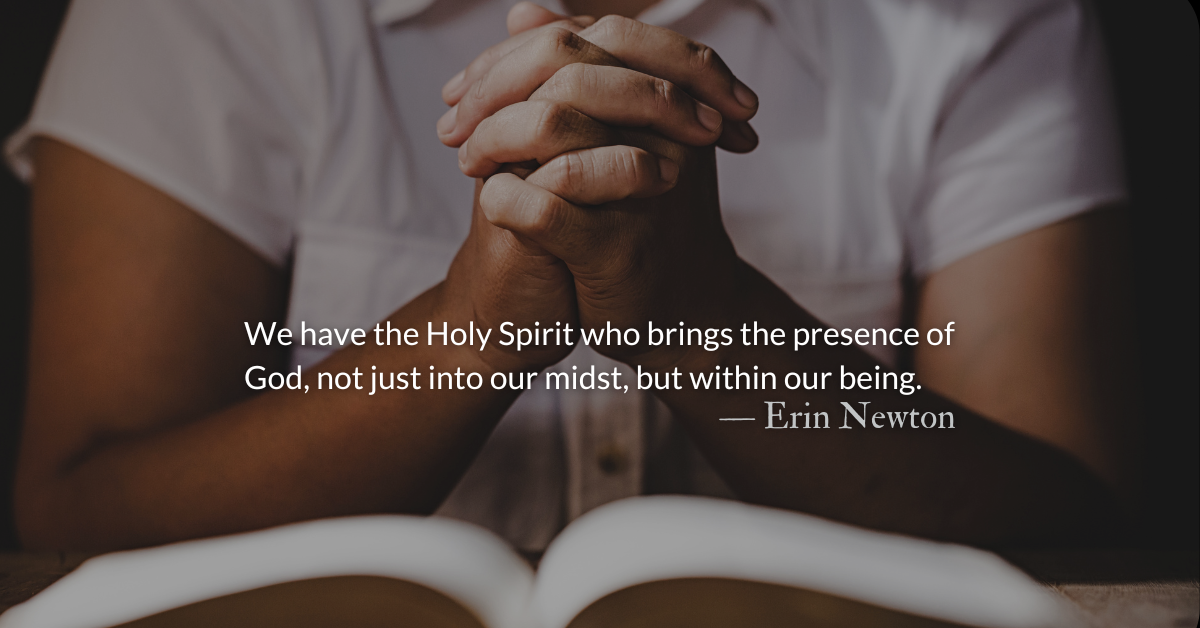Readers’ Choice Month:
Thank you for sending your selections of meaningful and helpful devotionals from the past 12 months. We have a few extra Readers’ Choice posts we will drop into this week and next. Remember that you don’t have to wait to send a Readers’ Choice. You can submit them all year long simply by replying back to our emails or filling out the form found at this link.
Scripture Focus: 1 Kings 8:49-50
49 …then from heaven, your dwelling place, hear their prayer and their plea, and uphold their cause. 50 And forgive your people, who have sinned against you; forgive all the offenses they have committed against you, and cause their captors to show them mercy…
Reflection: Hear Us from Heaven
By Erin Newton
Upon the dedication of the Temple, the presence of God fills the Holy Place like a cloud. The cloud is so magnificent that the priests move away and can no longer do their jobs. With the manifestation of God in the Temple, Solomon begins to pray for God’s grace upon the people.
The prayer of Solomon begins with the adoration of God. He praises his superiority and supremacy. Solomon marvels at the magnitude of God. But overall, the recurring message in the prayer is the plea for mercy. He stands between God and the people and falls to his knees, knowing that only by mercy can they live.
Within this 30-verse prayer, the phrase “hear from heaven” (or phrases similar) occurs 13 times. Even seeing the cloud, a visible manifestation of God’s presence, Solomon wanted to plead with God to hear him.
The design of the Temple that Solomon built had many features common to temples in the ancient Near East. There were distinct differences but nothing more distinct than the absence of images of the deity. God had already declared to Moses that they were to never make images of him. They worshiped the invisible God.
The command to follow and rely on God, forever unseen, was a huge act of faith. The people struggled with knowing that God was working when there were no outward signs. Psalm 77 echoes this sentiment, “Your path led through the sea, your way through the mighty waters, though your footprints were not seen.” Even the miraculous parting of the Red Sea is couched in the idea of hidden footprints.
Solomon prays over and over that in all sorts of situations God would be merciful and hear the pleas from heaven. Each scenario begins with a crisis, followed by a call to repentance, a plea for a listening ear, and a resolution to live righteously.
This prayer is as apt today as it was 3000 years ago. We have the Holy Spirit who brings the presence of God, not just into our midst, but within our being. But even with this constant presence, we plead with God to hear us. We need him to hear or we will be left in our crises.
One day our faith will be made sight. One day we will see our Lord face to face. For now, we pray to the invisible God and know that he is listening.
Divine Hours Prayer: The Request for Presence
Show us the light of your countenance, O God, and come to us. — Psalm 67.1
– From The Divine Hours: Prayers for Summertime by Phyllis Tickle.
Today’s Readings*
Ezekiel 5 (Listen 3:28)
Romans 8 (Listen 6:22)
*We have diverted into 1 Kings and Ephesians for this week. Devotionals on our daily readings will continue next week.
Read more about The Mountain of the Lord
Jesus is the mountain, the Temple, that is exalted over all other gods, rulers, and authorities.
Read more about The House God Desires
When we make room for God in our hearts and lives, he will enter.
And when our lives are over, we will awake in the house of God.











